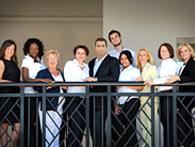 If you are worried about falls, you are not alone. Falls are the top cause of accidents in people over the age of 65. Falls are also the main cause of serious injuries and accidental deaths in older people. Even older people who appear to be strong and well can fall.
If you are worried about falls, you are not alone. Falls are the top cause of accidents in people over the age of 65. Falls are also the main cause of serious injuries and accidental deaths in older people. Even older people who appear to be strong and well can fall.
Falling is a real threat to your ability to live on your own. One bad fall can mean a lengthy hospital stay, painful rehabilitation, a loss of independent life, or worse. The danger of falls to seniors is becoming so great that preventing falls has become a national health priority.
The good news is that there are things you can learn to lower the risk of falling, either for yourself or someone you care for:
YOUR MEDICAL CONDITIONS
Many conditions that affect seniors can also increase your risk of falling. If you have Heart Disease or Congestive Heart failure (CHF) then falls can be a concern because it can cause dizziness, balance problems, muscle weakness and fatigue as well as respiratory difficulties. Strokes often result in muscle weakness, and/or paralysis on one side of the body which will diminish your range of motion, which can compromise one’s ability to move about safely.
Parkinson’s disease causes tremors; stiff aching muscles, rigidity and slow limited movement are all falls risks. Balance and posture problems may result in frequent falls as the disease progresses.
Low blood pressure (known as Hypostatic Hypertension) particularly when rising from a lying or sitting position is a common cause of falls. The shortness of breath that is caused by COPD can make you feel weak, dizzy or faint with minimal activity even when you do simple things like get dressed or fix a meal. Diabetes can cause a loss of feeling in the feet (diabetic neuropathy); which compromises your balance and sense of where obstacles and uneven footing may be a hazard.
Arthritis causes loss of joint flexibility and makes it difficult to maintain a safe gait. Vision impairment caused by glaucoma and cataracts or just aging eyes, also makes it difficult to maintain a safe gait and balance and avoid potential dangerous obstacles. This is a real concern at night or when in dark places.
Mental Confusion (short term memory loss or Dementia) can increase a chance of a fall since it is more difficult to determine if the certain activity is putting one at greater risk, or it may take longer to respond to situation where a fall might otherwise be averted.
WHERE SENIORS FALL
55% of all falls take place inside the home. More than ¾ take place either inside or in close proximity to the home, where a medical alert system can be of immediate assistance. More fall injuries are caused by falls on the same level (vs. stairs) and from tripping while walking.
WHY SENIORS FALL
The normal changes of aging, like poor eyesight or poor hearing, can make elderly more likely to fall. Illnesses and physical conditions can affect your strength and balance. Poor lighting or throw rugs (without nonskid backing) in your home can make you more likely to trip or slip. Drug interactions in elderly or non- compliance with medications are also believed to be the root cause for many falls incidents. Medicines for depression, sleep problems and high blood pressure often cause falls. Some medication for diabetes and heart conditions can also make elderly unsteady on their feet .
You may be more likely to fall if you are taking four or more medicines. You are also likely to fall if you have changed your medicine within the past two weeks.
- 31% Accident/Environment
- 17% Gait/Balance Disorder
- 13% Dizziness/Vertigo
- 10% Drop Attack
- 15% Other Specified
- 5% Unknown
- 4% Confusion
- 3% Visual Problem
- 3% Postural Hypotension
FEAR OF FALLING
20%-30% of senior s fear falling.
90% of falls that do not result in injury can still have a detrimental impact on health and well-being.
30-50% of elders report that the fear of another fall results in loss of confidence and self-imposed restriction of activities, thereby increasing the risk of falls
HOW OFTEN FALLS OCCUR
About 1/3 of the elder population over the age of 65 falls each year, and the risk of falling increases with age. At 80 years, over half of seniors fall annually.
As alarming as it sounds, these documented statistics fall short of the actual number since many incidents are unreported by seniors and unrecognized by family members or caregivers.
Those who fall are two to three times more likely to fall again. About 53% of the older adults who are discharged for fall-related hip fractures will experience another fall within six months.
Falls are the leading cause of death due to injury among the elderly. 87% of all fractures in the elderly are due to falls. Falls account for 25% of all hospital admissions, and 40% of all nursing home admissions. 40% of those admitted do not return to independent living and 25% die within a year.
For the elderly who fall and are unable to get up on their own, the period of time spent immobile often affects their health outcome. Muscle cell breakdown starts to occur within 30-60 minutes of compression due to falling. Dehydration, pressure sores, hypothermia, and pneumonia are other complications that may result.
Getting help after an immobilizing fall improves the chance of survival by 80% and increases the likelihood of a return to independent living. Up to 40% of people whom have a stroke have a serious fall within the next year.
YOUR STRENGTH AND BALANCE
Staying active means fewer falls.
Research shows that seniors who are less active are more likely to fall, because they lack the strength and balance that they need to resist falls. Healthcare professionals recommend starting a regular exercise routine of any kind-even if you start by taking only a few steps every day.
Exercise may improve your… Strength and Stamina
Giving your heart, lungs and the rest of your cardiovascular system even a modest workout can make a tremendous difference in the way you feel, in your energy level, and the way you go about enjoying life as best as you can.
Balance
When you were young, you had to learn to balance yourself, and unless you continue to use your balance under safe conditions, this vital skill diminishes. Balance also helps you to keep the mass of your body over your feet, which helps you maintain your stability when moving your weight from one position to another.
Gait
Regain some of the spring in your step, and practice walking (either alone or with cane or walker) with a stronger, safer and more fluid gait.
Reflexes
Exercise can make you more responsive and help you react more safely to obstacles in your path and other potential dangers.
MEDICATIONS
Although medicines can help you stay well, they can put you at risk for falling.
This is especially true if you are taking several medications several times a day. There are three reasons why:
- Some drugs have side effects, and may make you feel dizzy, confused and otherwise less able to prevent a fall.
- Two or more drugs may interact in a way that produces undesirable side effects.
Non-compliance with MD orders. Seniors might do this because they forget or find their medication schedules too complicated, or are dismayed by the side effects
WHAT CAN YOU DO TO PREVENT FALLS?
First, be sure your home is as safe as possible.
Here are some tips:
- Wear shoes with nonskid soles (not house slippers).
- Keep your home well lit so you can see things you might trip over.
- Use night lights in your bedroom, bathroom, hallways and stairways.
- Remove throw rugs or fasten them to the floor with carpet tape. Tack down carpet edges.
- Don’t put electrical cords across pathways.
- Install grab bars in your bathroom, shower, and toilet area.
- Have handrails put on both sides of stairways.
- Don’t climb stools and stepladders.
- Don’t wax your floors at all, or use nonskid wax.
- Have sidewalks and walkways repaired so that surfaces are smooth and even.
- Avoid Clutter on floors. Keep area clean and dry at all times.
- Next, get regular check-ups from your doctor, and take good care of yourself:
- Have your eyes checked every year for vision changes/impairments, cataracts, glaucoma, etc.
- Have your hearing checked every two years, or anytime you or others think that you can’t hear well.
- See your doctor if you have foot pain or corns, or if you cannot trim your toenails well. Sore feet can make you fall.
- See your doctor right a way if you feel dizzy, weak or unsteady on your feet, if you feel confused, or if you fall.
- Let your MD know if your medicine is making you feel dizzy or making you lose balance.
- If your doctor wants you to use a cane or a walker, learn how to use it safely- and use it all the time.
- When getting up from bed during the night or the morning, sit on the side of the bed for a minute or two before you stand up. This will give your blood pressure time to adjust, and you will feel less dizzy.
- If you need to go to the bathroom often at night, consider using a bedside commode. And keep your body in good shape:
- Get regular exercise, especially walking.
- Do exercises to strengthen the muscles you use for walking and lifting.
- Do not smoke.
- Limit your alcohol intake to two drinks or less a day.
WHAT CAN MY FAMILY DO TO HELP ME PREVENT FALLS?
Your family can check your home for dangers that may make you trip or fall. They can take a walk with you to see how stable you are. They can watch for changes in your strength or balance. Your family can respond to any worries you might have about feeling dizzy, weak or unsteady, and they can see to it that you get help.
WHAT YOU CAN DO
- Keep a complete, dated list of the medications you take and bring it to your MD regularly. This means prescription and non-prescription drugs, pain relievers, herbal remedies and other treatments you get at the Rx or market.
- Report any new symptoms to your doctor right away. He/she will determine if the symptoms are side effects caused by the medication.
- Always take medications as directed . It is easier to keep track of your meds if you use medicine organizer, a medicine dispenser, or ask your pharmacist to dispense your medications in a blister pack.
- Combine all prescriptions with a single pharmacy. That way your pharmacist can more easily review your medications and communicate any concerns
- with your doctors. Together, they might decide to try changing one or more of your medications, dosages, etc.
DID YOU KNOW
Canes, walkers and wheelchairs can actually be fall hazards. This is particularly true if these assistive devices are not in good repair or ill-fitting. Ask your therapist or medical equipment professional how to get a period “tune-up.” They can also give you good advice or instructions on how to use these devices for safe transfers and how to minimize or eliminate the risk of falling.
Drinking plenty of fluids and staying hydrated can reduce the risk of falling. Be sure to drink water throughout the day. Because rushing to the bathroom can also cause falls, it is a good idea to use the bathroom on a regular basis, perhaps every few hours, even before they feel the “urge.”
Having your vision checked can help prevent falls. We use our vision to help maintain balance and to move around safely. If it has been a while since you saw a doctor, then schedule an appointment.
Sitting up or standing too quickly can lead to a fall. You can feel dizzy or lightheaded, particularly if you are taking some medicine for high blood pressure. To prevent this, be sure to: Stand up slowly when getting up from a seated position. Get up slowly when getting out of bed. Dangle your legs over the side of the bed for a few minutes before standing up.
Research shows that seniors taking more than 4 medications daily are at the higher risk for falls.
The best time to get a “medication checkup” is before you start a new prescription. That way you will know if the new medicine could create any additional interactions or risks that could lead to falling. The best person to do the check up is your primary care physician or your pharmacist.
The longer you sit the greater the risk of falling. Inactivity can lead to a loss of balance and fitness which can contribute to falls.
Walking and talking can lead to falls. As we get older, it takes all our concentration to move around safely and distractions like talking make walking far more difficult.
You will see the benefits of exercising and your increased activity within just a few weeks of starting. As your strength, balance and overall outlook begin to steadily improve, remember, it is vitally important to start exercising within your ability to succeed. Start slow! Seeing early results also reinforces your enthusiasm for exercise and gives you the confidence you need to continue to stay active and AVOID FALLS.
FALLS ARE A NATIONAL HEALTH PRIORITY
$30 billion is spent annually on healthcare related to falls. Medicare costs alone for hip fractures as a result of falls are projected to be about $240 billion dollars by 2040.
The average cost for a fall injury was $19, 440 (including hospital, nursing home, emergency room and home health care, but not physician services).
The Elder Fall Prevention Act has been passed by Congress for the development of effective public education, expansion of services and research on best practices
Sources
Intervention for Preventing Falls in Elderly People. Cochrane Database of Systematic Reviews 2009
Gillespie LD, Gillespie WJ, Robertson MC , Lamb SE, Cumming RG, Rowe BH., Dept of Health Services.
Falls Among Elder Adults: Brochures and Posters.
CDC Falls Prevention Activities Self-Reported Falls and Fall Related Inju ries Among Persons Aged 65+ years, United States, 2006
Recovery starts at home… Premier Care Nurses of America provides well trained, personable and reliable Care Givers, Nurses, and Care Managers to individuals needing quality home care. We also provide services to patients in hospitals, assisted and in dependent living facilities and nursing homes. Our services enhance an individual’s quality of life and promote independence by allowing the patient to remain in the comfort of their own home. To find out more abou t our services, to arrange home care or to get a home fall risk assessment please call our Palm Beach Office at (561)353-9200 or our Broward County Office at (954)933-9005. If you desire to speak with Mirjana Goforth, the Administrator, directly you can reach her at (561) 317-9233. Premier Care Nurses accepts Medicaid Waiver Patients for Palm Beach and Broward Counties.
“Loving Care for Your Loved Ones”





